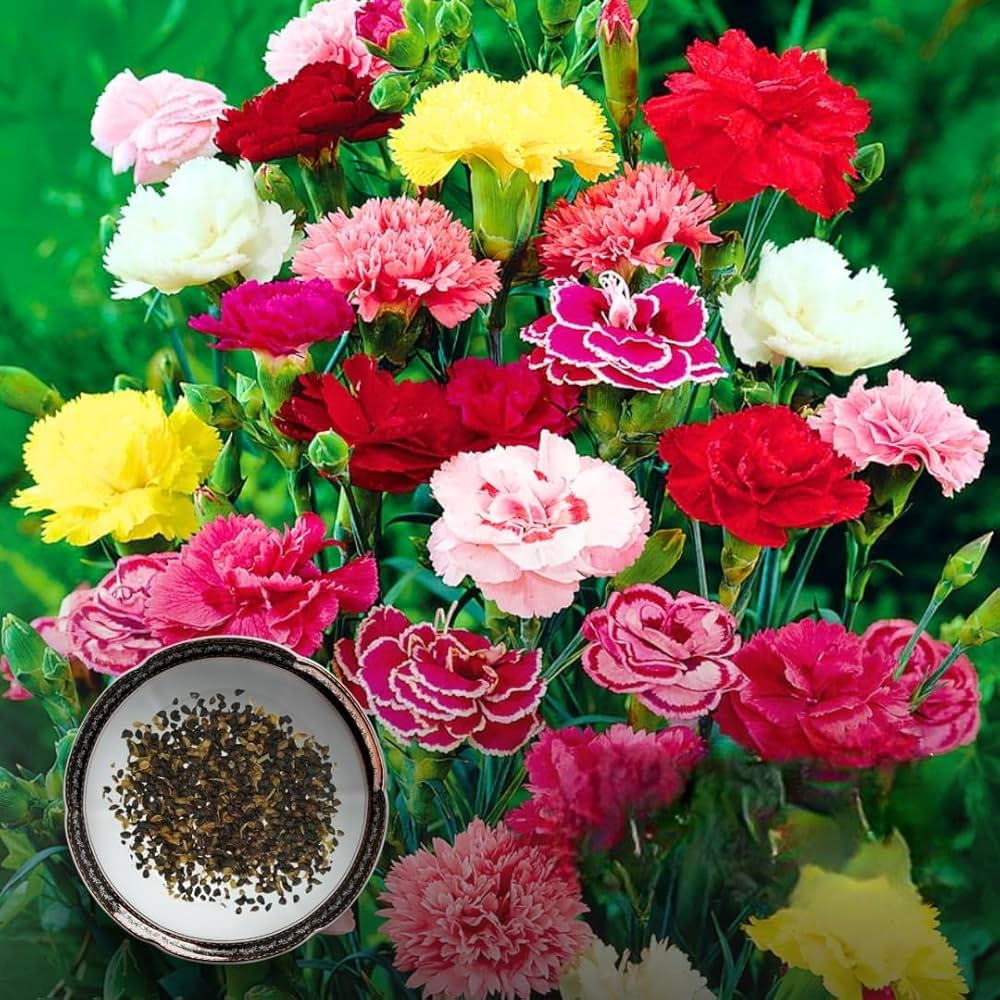Carnation Dianthus caryophyllus flower seeds for indoor pots and seasonal flower beds
Couldn't load pickup availability
Description
Carnation Seeds
Characteristics and Uses of Carnation Plants
Carnation plants are cherished for their vibrant colors and delightful fragrance, making them a popular choice among gardeners. These perennial flowers produce stunning blooms that can last for weeks, adding beauty to gardens, borders, and floral arrangements. With a variety of colors and forms, including fringed and ruffled petals, carnations are versatile and can be used in both formal and informal settings. As a big, trusted name in the USA seed market, bijaseeds offers high-quality non-GMO seeds that ensure your gardening experience is both rewarding and enjoyable.
Growing Conditions for Carnation Plants
- Soil Type: Well-draining, sandy loam soil enriched with organic matter is ideal for healthy growth.
- Sunlight: Full sun is essential, requiring at least 6 to 8 hours of direct sunlight daily.
- Temperature: Carnations thrive in moderate temperatures, ideally between 60°F to 70°F.
Planting Tips for Carnation
- Timing: Plant carnation seeds in early spring or late summer for optimal growth.
- Depth: Sow seeds about 1/4 inch deep in the soil.
- Spacing: Space plants at least 12 to 18 inches apart to allow for their growth and air circulation.
Watering Instructions and Tips
- Frequency: Water regularly, ensuring the soil remains consistently moist but not soggy.
- Method: Use a soaker hose or drip irrigation to keep foliage dry and prevent disease.
- Drainage: Ensure good drainage to avoid root rot, especially in heavy soils.
Growing Zones
Carnation plants are suitable for USDA zones 3 to 9 and can also thrive in global zones with similar temperate climates. This adaptability makes them a versatile choice for many gardeners.
Key Benefits & Uses
- Ornamental Appeal: Carnations add beauty and elegance to any garden setting.
- Long-Lasting Blooms: Known for their longevity, making them ideal for cut flower arrangements.
- Wildlife Friendly: Attracts beneficial insects, including bees and butterflies.
Best Uses in the Garden & Landscape
- Flower Beds: Perfect for creating stunning flower beds filled with color.
- Borders: Ideal for planting along pathways or garden edges for a vibrant display.
- Containers: Great for patio pots and containers, adding beauty to small spaces.
Conclusion
In conclusion, carnation seeds are an excellent choice for gardeners looking to create a colorful and fragrant garden. With the right care and conditions, these beautiful plants can flourish and provide stunning blooms for years to come. bijaseeds is a big, trusted name in the seed world, offering a wide range of high-quality, non-GMO varieties to gardeners everywhere.
FAQ
How do I grow carnation seeds?
To grow carnation seeds, start by soaking them in water for 24 hours to enhance germination. Plant the seeds in well-draining soil, covering them with about 1/4 inch of soil. Keep the soil moist and place them in a sunny location until they germinate.
When is the best time to plant carnation seeds?
The best time to plant carnation seeds is in early spring or late summer, allowing them to establish before the heat of summer or the cold of winter.
Are carnations difficult to grow?
Carnations are not particularly difficult to grow, but they do require specific conditions, such as full sun and well-draining soil. With proper care, they can thrive and produce beautiful blooms.



